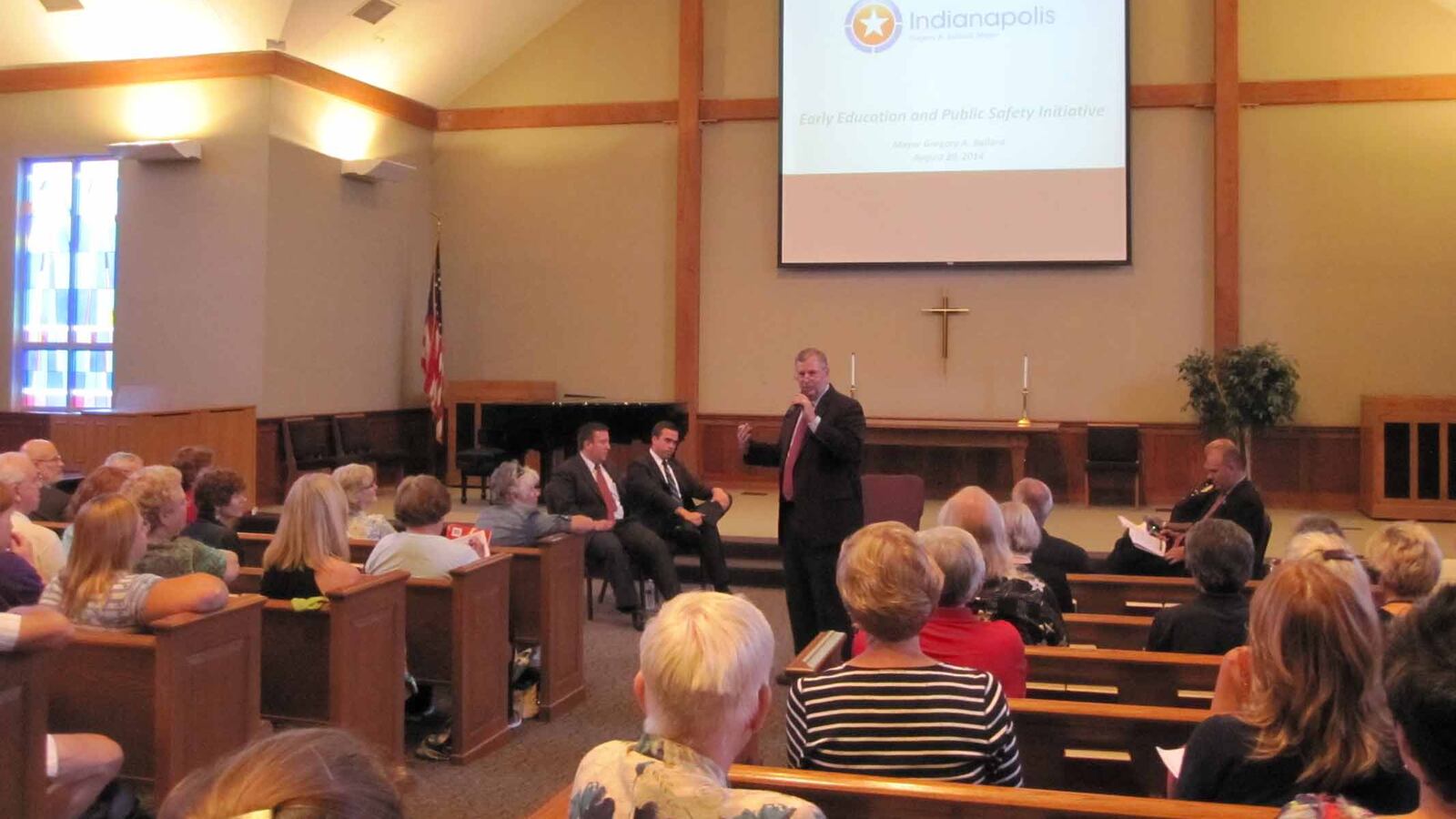Confusion remains for some residents over how Mayor Greg Ballard plans to fund his recently announced anti-crime initiative, which includes a $50 million public-private partnership to increase access to preschool.
At a town hall meeting Wednesday night at Southport Presbyterian Church, the mayor and his staff tried to explain: The city hopes to raise $25 million through philanthropy, but the other $25 million is planned to come from the elimination of the Homestead Tax credit, which would add $5 million each year over five years to efforts to increase preschool quality and offer scholarships to low-income families.
Mainly, the confusion arose over the Homestead Tax Credit vs. the Homestead Tax Deduction — two different things, the mayor’s chief of staff, Ryan Vaughn, explained.
“Everyone say it with me, it’s not the deduction, it’s the credit,” Vaughn said.
“People think we’re eliminating the deduction,” he said. “Not at all. Even if we wanted to, we have no legal authority to do so.”
The Homestead Tax Deduction gives relief to taxpayers by reducing the amount of property taxes they owe. Instead of requiring taxes to be paid on the full assessed value of a home, taxes are only required to be paid on 40 percent of the assessed value of a home (the deduction is capped at $45,000). For example, if a home is assessed at a value of $100,000, the homeowner would only pay taxes on $40,000.
Funding for the preschool initiative has no effect on that deduction.
Ballard proposes to eliminate the homestead credit. Anyone who lives and works in Indianapolis pays income taxes to the city. Currently, Ballard said, the city gives some of that money back to homeowners as a credit on their taxes.
“The only people that benefit from that choice are homeowners, not renters, not teenagers living with their parents, not those living in subsidized housing,” Ballard said. “And not even all homeowners, because if you are at or above the property tax caps, you get no financial benefit whatsoever.”
The mayor said only about 54 percent of homeowners in Marion County see a benefit from the tax credit, and they’d lose only about $22 per year if it were eliminated. A map of the county showed the the area where people currently receive the most value from the tax credit is in Washington Township, which is because the area has property with high assessed value and low school township taxes.
“What this credit is about is the working poor is subsidizing the property rich,” Ballard said.
Perry Township resident Matilda Maynard wasn’t convinced, however, that doing away with the tax credit was in her best interest. She said many people in her community are retired and that even a small amount of money matters.
“It may not mean a lot to you guys,” Maynard said. “But it means a lot to us.”
She thinks the city should look at other areas to cut to raise funds for preschool.
Jason Kloth, deputy mayor for education, said it is “absolutely appropriate” that residents are questioning where their tax dollars go and taking an interest in public policy and the funding priorities of the city.
“We believe that the Homestead Tax Credit, which takes income tax to pay down property taxes, oftentimes for people who are more affluent, is one way to (prioritize funding),” Kloth said. “But for us, we believe we need to start to get at the root causes of crime, and early childhood education is one of the most research- and evidenced-based ways of doing that.”


